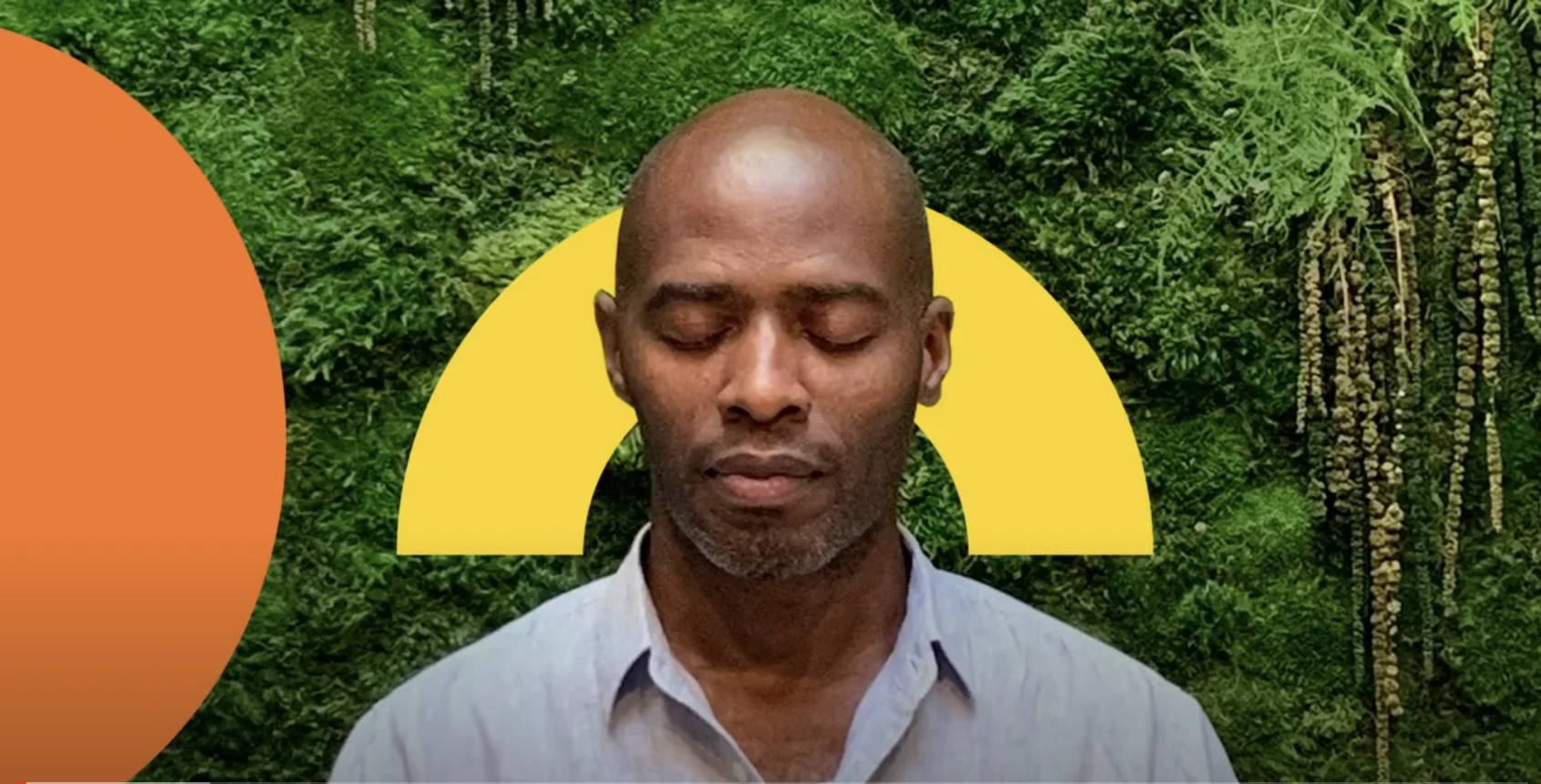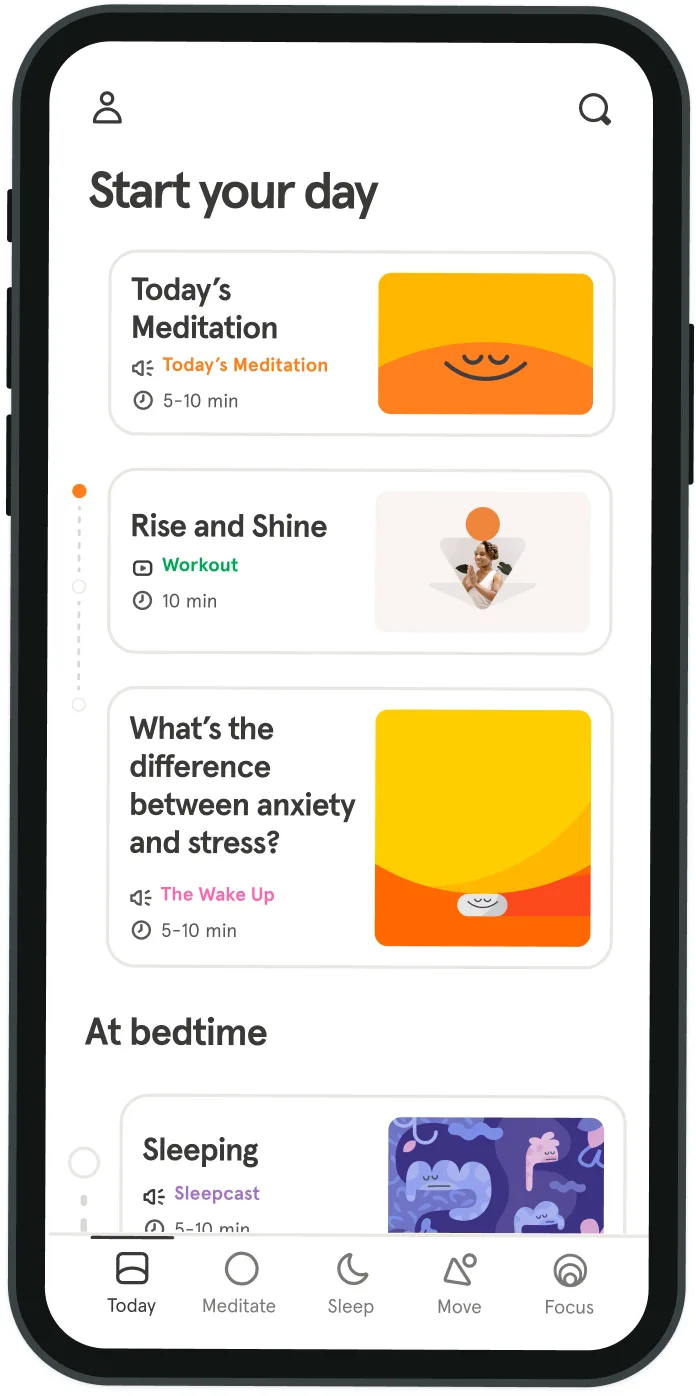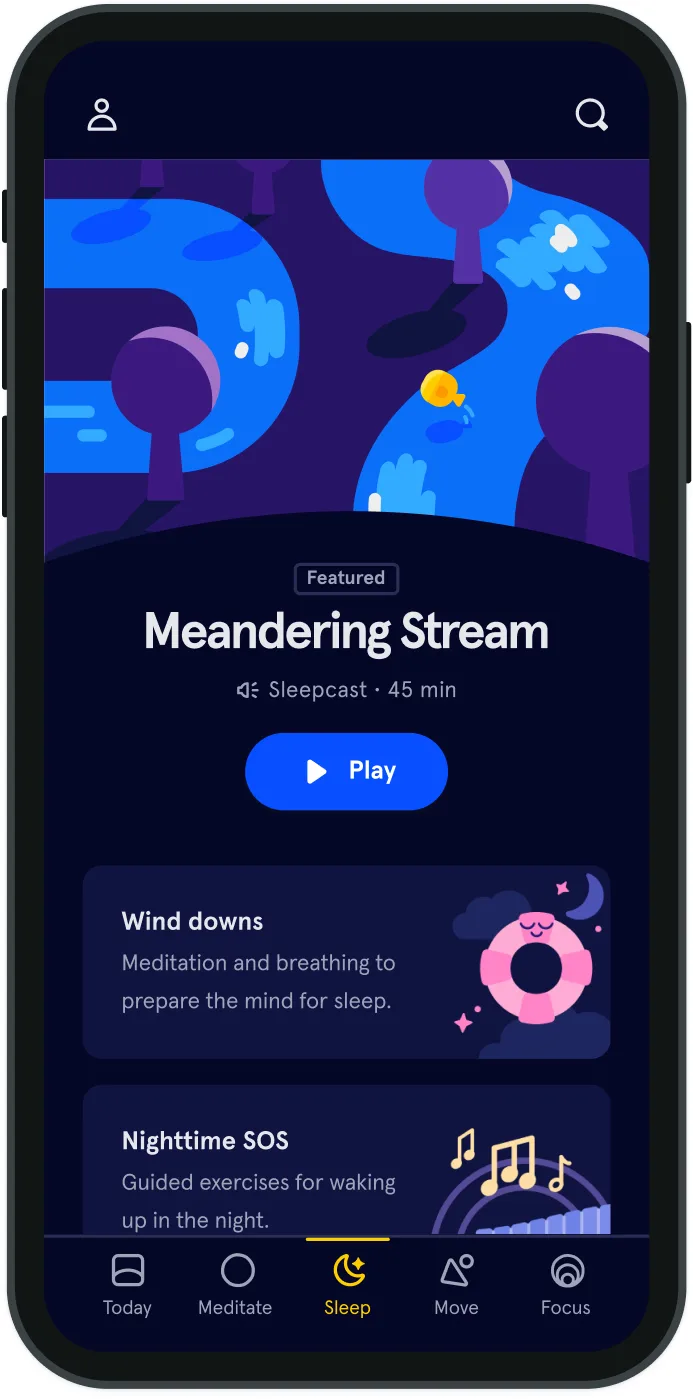Meditation for a healthy body image
The most important relationship is the one we have with ourselves. Being comfortable and confident in our own skin makes that relationship easier and more enjoyable. When we feel good, we take pleasure in life and the things our body lets us experience. But when we struggle with our body image, we might find that relationship gets tricky. Moving through our days confidently or caring for ourselves can be challenging.
If we feel this way, it can be helpful to remember it’s possible to develop a healthy relationship with our body. Nothing physical needs to change for us to start appreciating ourselves as we are right now. But our relationship with our body might need some adjusting.
Through meditation, we can rewrite the stories we’ve been telling ourselves about our body image and learn to befriend our body. By intentionally spending time with our mind, we can increase self-compassion, find acceptance, and build the strength and confidence to start loving ourselves, however we look and feel. Let’s learn how to accept our body and create a kinder relationship with ourselves and our mind.

Try a free guided meditation

Watch A Meditation for Self-Love - 10 min
Key takeaways:
Meditation helps us increase self-compassion, find acceptance, and learn how to practice self-love
A daily meditation practice can help us create a kinder relationship with our body and mind
Try three meditations for building a healthy body image with Headspace
What does it mean to have a healthy body image?
We have a healthy body image when we can accept our body the way it is right now. We’re honest with ourselves, and that lets us feel fully ourselves and at home in our body. People with a healthy body image don’t change or restrict how they think, act, dress, or behave to exist authentically in the world, as long as they feel safe. Having a healthy body image isn’t forced. It’s freeing. It can even be seen and experienced as an act of rebellion and protest.
Maybe we stop shaving certain body parts even though we’ve been told they look “better” hairless. Or we wear certain hairstyles that others have told us look “unprofessional.” Maybe we don’t cover up parts of ourselves that aren’t “fit.” Or maybe we put on less or more makeup to express ourselves even though it might be unexpected.
Getting to this comfortable and confident place — even thinking about getting there — can feel like we’re up against a lot. We contend with ideas passed down in our families and social circles, the standards set by society, the selfies we see online, and unsolicited comments about our appearance. We might not see ourselves represented as much as others, or at all. We might be struggling to break up with unsupportive habits and people. All this makes it easy for the mind to get caught up in comparing and contrasting ourselves with others. Plus, shifts in our moods and emotions can also impact our ability to show our bodies love.
That is a lot. But building a healthy body image might feel more manageable if we focus on what’s in our control. A good place to start is to consider how we speak to ourselves. Being mindful about the words we choose when we talk about, think about, touch, or look at our body is way more important to our well-being than we may think.
Can meditation help body image?
How we feel about our body is linked to how we talk to ourselves. If we’re used to saying critical things about how we look or our physical abilities, meditation can help us manage negative self-talk.
Think about how we might talk to a close friend. Chances are, we speak to them gently and encouragingly. We care for them no matter what they look like or what state of health they might be in. We likely treat them with extra care if they struggle with body image issues. Building a healthy relationship with our body looks like that.
Meditation won’t silence the critical voice in our heads. The mind will always think. But meditation helps us realize we don’t have to always listen to it: thoughts are just thoughts. We’re the ones who give them weight and meaning. Meditation teaches us how to let go of thoughts when they pop up, instead of chasing after them or believing they’re the truth.
Once we learn to do this, we can be kinder to our bodies in the present moment. This study shows that after practicing compassion meditation for three weeks, participants experienced a significant decrease in body dissatisfaction and an increase in both self-compassion and body appreciation. By speaking to themselves kindly instead of critically over that short period of time, they were able to boost their confidence about their self-image — all thanks to meditation.
Meditation can also help us change how we relate to a common source of body image issues: comparison. When we see other peoples’ bodies moving through the world differently from our own, we might jump to conclusions about how our lives would be better if we had what they have. This is a very human response. But when we live in this constant state of comparison and use that comparison to criticize ourselves, we get stuck in a negative view of our bodies. To get unstuck, we can learn to deal with challenging emotions.
Feeling our feels can be really uncomfortable, whether we’re sad because we don’t feel appreciated, lonely because we don’t feel loved, or angry because we don’t feel seen. It’s why many of us try to bottle up our emotions or turn to other comforts to escape them. But no matter where we hide from them, they’re still there. Meditation gives us the opportunity to pause, pay attention to, and process our emotions in a safe space. When we accept these uncomfortable emotions and allow ourselves to feel them, we give ourselves the chance to discover what we need. Our self-criticisms about our body are likely a signal that we need self-care. With this new awareness, we can start to nurture ourselves whenever complicated emotions pop up.
What are the benefits of meditation for a healthy body image?
When we think of someone with a healthy body image, we probably imagine someone who's self-assured. They hold their head high, take up space, and appear confident. We can create the conditions to develop these qualities through daily meditation practice. Let's learn about some of the key benefits of meditation for a healthy body image that helps us do that.
- Increase self-compassion
When we meditate, we learn to slow down, notice how we talk to ourselves and offer ourselves compassion instead of criticism. Research shows that self-compassion is crucial for our well-being. One study found that mindfulness is the best way to tap into our self-compassion. Just three weeks of Headspace has been shown to increase compassion by 23%. As Headspace teacher Dora Kamau says, “If we are kinder to ourselves, we can accept ourselves as we are. And if we accept ourselves, we can love ourselves as we are.”
- Find acceptance
Acceptance is being at peace with the way things are. We find that ease when we stop resisting and struggling with our circumstances.
Meditation helps us recognize when we’re caught in resistant thinking. We’re able to notice we’ve labeled our nose “good” and our arms “bad,” or we’re focused on how we’d rather be. Then, we learn to let go of those judgmental thoughts instead of focusing on them. With practice, we understand none of our body parts or appearances are “good” or “bad.” They’re just us. And we stop allowing our mind to assign and believe critical labels. We may even start to feel gratitude for all our body does for us.
- Learn to practice self-love
Self-love is feeling worthy, valuable, and lovable, no matter what is or isn’t happening in our lives. Meditation helps us be kinder, gentler, and less judgmental towards ourselves. Research shows a relationship between meditation and elevated self-esteem and happiness, as well as lowered anxiety, each of which makes it easier to love and appreciate ourselves.
How do I practice meditation for a healthy body image?
Try these four simple meditation techniques to get started:
- Body scan meditation
A body scan is a meditation technique where we mentally scan our body from our toes up to our head at a steady, even pace — like how a copy machine scans a piece of paper. As we scan, we take long, deep breaths and focus on how each part feels. It’s a way to boost our awareness and appreciation of our body as it is in the moment.
Start with the toes. Inhale through the nose, exhale through the mouth, and notice if they feel relaxed or tense, comfortable or uncomfortable, energetic or tired. If we sense tension, don’t struggle. Instead, breathe into that part of the body again and notice if anything changes. If it does, great. If it doesn’t, that’s okay. We can move on.
And, if it feels possible, we can even offer gratitude for each part of our bodies and the things they allow us to experience. Repeat this practice all the way up the body, going next to the feet, ankles, calves, shins, knees, thighs, and so on — taking about 20-30 seconds to focus on each body part. All bodies are different and come with different abilities. If we scan an area of the body that’s challenging to be with, we can always move to another place that feels more neutral. Or, try shifting focus to something else, like our breath or the sounds around us.
- Noting
If we get distracted by negative self-talk (while we meditate or do anything else), the noting meditation technique helps us call it out. We stop to recognize, “Oh, I’m thinking. Oh, I’m not being so kind to myself.” This simple act gives us a sense of having dealt with our thoughts and feels easier to let go of the distraction and return to whatever we’re doing. When we get distracted again — and we will — repeat the process of pausing, noting, and letting go.
- Loving-kindness meditation
We can use different visualization techniques to access compassion for ourselves and others, a.k.a. loving-kindness. One way is through “sunlight visualization.” We can visualize the sun beaming over our whole body, or we can imagine it warming up each part, one by one, from the top of our head down to our toes. Doing this can make us feel lighter and comforted on the spot.
- Gratitude meditation
When we have issues with our body image, we often return to negative stories about our bodies out of habit. If we’ve been in this cycle for much of our life, it can feel normal to be so critical of ourselves. Practicing gratitude helps us appreciate our bodies and all they allow us to do and experience.
Research shows that those who regularly take time to practice gratitude are less likely to compare themselves to others. That’s partly because when we practice gratitude, we release happiness chemicals like dopamine and serotonin, which can help reduce more challenging emotions like envy and resentment.
Practicing gratitude is simple, and we can do it wherever we are. All we need is to take some time to reflect on what we’re grateful for in our lives. It could be anything: a family member, a friend, or a beautiful day. It could be something large or small, an experience or something tangible. When we practice gratitude for anything, we find it easier to access appreciation in our day-to-day lives.
Meditate for a healthy body image with Headspace
The Headspace app has hundreds of guided exercises to help you build your practice. Start by searching these three meditations to help you build a healthy body image. A happier, healthier you is a few breaths away.
Self-esteem course. Move toward a less judgmental inner life by creating space in your mind to observe negative and self-critical thinking.
Self-love meditation. Tap into the love that’s always available to you.
Quiet Confidence guidance. Explore the connection between confidence and vulnerability.
Don't have an account?


Be kind to your mind
- Access the full library of 500+ meditations on everything from stress, to resilience, to compassion
- Put your mind to bed with sleep sounds, music, and wind-down exercises
- Make mindfulness a part of your daily routine with tension-releasing workouts, relaxing yoga, Focus music playlists, and more
- © 2024 Headspace Inc.
- Terms & conditions
- Privacy policy
- Consumer Health Data
- Your privacy choices
- CA Privacy Notice



